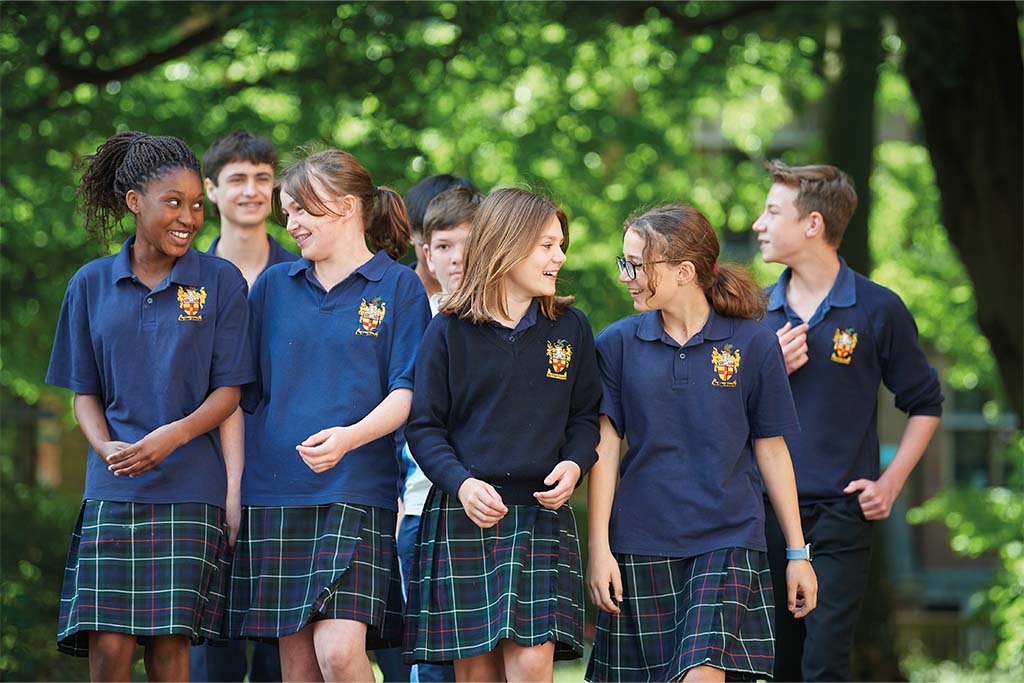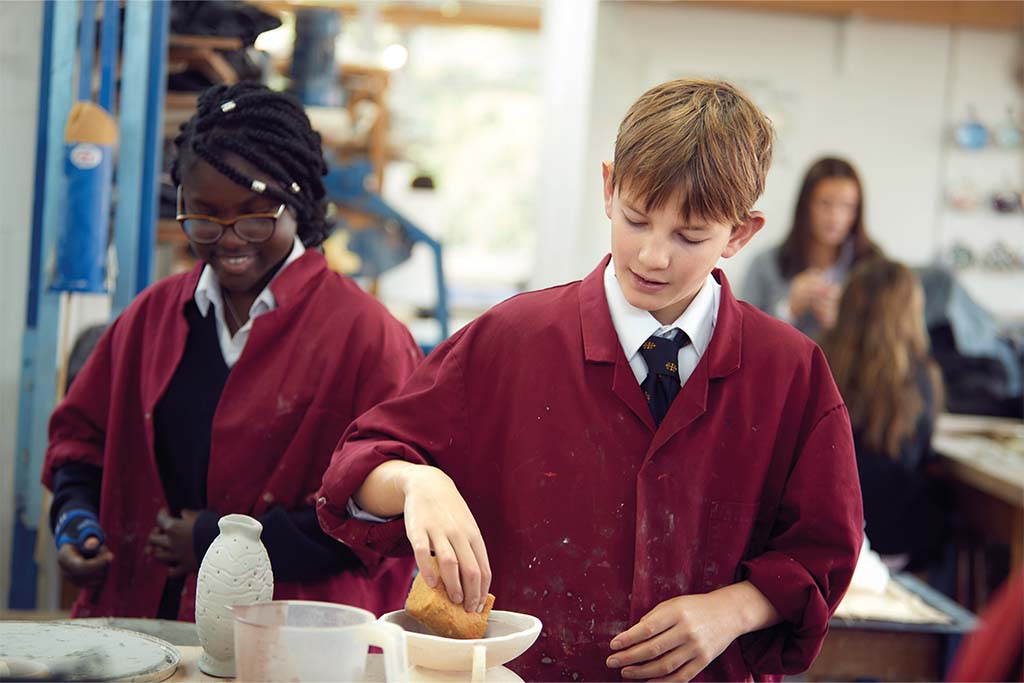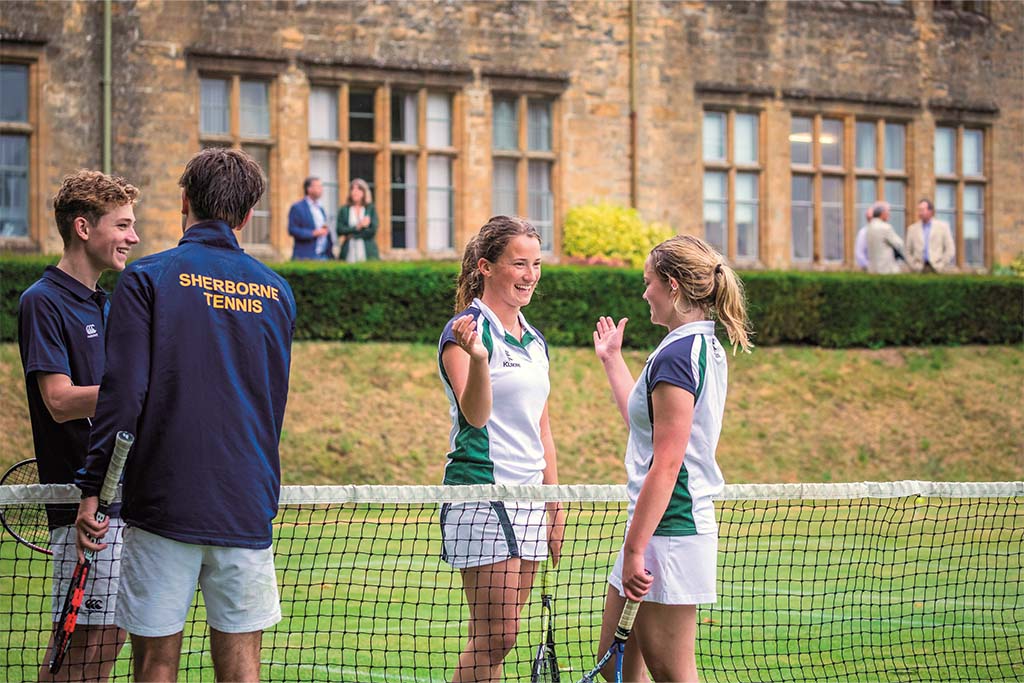You’re Worth It
By
3 years ago

Scholarships don’t just carry kudos, finds Anna Tyzack. They are a powerful way to identify and encourage raw talent
The proud parents of Eton College’s top scholars used to dodge paying school fees entirely, but today scholarship pots at Britain’s public schools are slim.

With the focus now on lending financial support to those who really need it via bursaries, scholars are lucky to save their parents five per cent on fees – many schools, Eton included, have scrapped non means-tested financial awards altogether.
‘I’m a big believer in fairness and widening access,’ maintains Alastair Chirnside, warden of St Edward’s Oxford, where the annual financial award attached to scholarships is now just £2,000, and £1,000 for an exhibition. ‘Those that shine at scholarship interviews at a young age often do so because of what they’ve had access to – the system needs to be fair.’

This does not mean, however, that fewer scholarships are being awarded. The offering is broader than ever with academic, sport, art and drama scholarships now accompanied by awards for STEM, chess and individual sports including cricket, golf, swimming and riding; Brighton Girls’ School in Sussex even offers a skateboarding scholarship. According to the Good Schools Guide, certain schools still offer esoteric scholarships to the children of clergy, doctors, armed forces and single parents.
The Independent Schools Council (ISC), which represents more than 1,300 independent schools in the UK, reports that last year more than 59,000 students were awarded a non-means tested scholarship, each receiving an average of £3,380 per year. While bursaries have their own means-tested application process, many schools are more inclined to award a bursary to a child who has gained a scholarship.
The modern scholarship focuses less on financial reward and more on developing a pupil’s raw talent for the future. Many schools now offer scholars’ mentoring programmes, designed to inspire and promote continued scholarship and ensure pupils achieve a place at a prestigious university or drama school or a place on a national team.
‘It’s not about privilege but high expectations and opportunities to stretch oneself,’ explains Martin Priestley, headmaster of The Leys School in Cambridge.

Academic scholars at Sherborne Girls in Dorset, where the maximum non-means-tested award is £3,000, participate in seminars, discussions and debates reserved for the most able students, while at Brighton College in Sussex, chess scholars are offered the highest possible level of coaching to develop their skills.
Meanwhile, the drama scholar at Truro School receives one-to-one coaching to audition for the National Youth Theatre and Drama School and in the sixth form they’ll have the opportunity to perform at the Edinburgh Fringe Festival and work with professional directors. The recipient of the Rachael Heyhoe Flint Cricket Award at Malvern College benefits from specialist cricket coaching, and Bradfield College football scholars are part of a highly regarded intensive football programme.

Suzie Longstaff, headmistress of Putney High School in London, believes that modern scholarship should encourage rigour, analytical skills and an entrepreneurial style of thinking – all of which are required at university. ‘Taking ownership of your learning is a key ingredient in the recipe for scholarly success,’ she says.
It’s not acceptable for scholars to enjoy elevated status and extra support without giving back to the school community, though, Chirnside points out. At St Edward’s Oxford, scholars are expected to provide motivation and promote scholarliness across the whole school community and it’s the same at Sherborne Girls – scholars are expected to show leadership in and out of the classroom. At The Leys School, a scholarship is a responsibility to set a fine example in their conduct around the school.
‘An Eton scholar I met said it was one of the worst things to have happened to him – he was celebrated so greatly that aged 13 he thought he’d arrived,’ Chirnside explains. ‘A school has to be alive to the elitism of scholarships – you don’t want to applaud a child so loudly that they think they’ve cracked it.
‘One only has to attend a school reunion to see that the most successful are not always the scholars – scholarships are a means to an end, not the end itself.’
So what makes a good scholar? According to Louise Orton, senior deputy head of Sherborne Girls, a scholar is someone who is endlessly curious, realises there is no such thing as a stupid question, and is committed to raising standards – their own and that of the community. While schools and parents can teach an applicant what to expect at a scholarship interview or exam, familiarising them with past papers and offering interview practice, it’s impossible to coach them – they either have the X-factor or they don’t.
‘We prefer them not to be prepared,’ Orton says. ‘They need to show a love of learning, curiosity and an ability to problem solve when handling something new.
‘Our best interviews are with the least prepared candidates – a scholar knows themselves and for this reason they shine.’ Tempting as it is to push your child to try for a scholarship, this should only be done if their prep school supports your decision.

The scholarship syllabus is tough on children, Chirnside warns; the ideas and concepts they are dealing with are harder, and if their understanding is shaky, they will find themselves struggling in their first year of senior school. ‘It’s better for them to enjoy their childhood rather than sweating through endless additional work,’ he says.
Besides, there is no longer just one chance for your child to be made a scholar. Increasingly schools are awarding them to deserving pupils at other junctures as well as the traditional 12+, 13+ and sixth form windows.
For example, at Wellington College in Berkshire, the seven highest academic accolades – named scholarships – along with sport, art, dance and drama scholarships, are awarded at the end of Year 9, once teachers have got to know the intake, while at Sherborne Girls’, awards are made to pupils who have excelled in their GCSEs.
‘They don’t need to sit a scholarship exam – by this stage we know who our scholars are,’ Orton says.
St Edward’s Oxford awards honorary scholarships at the end of each year to pupils who show a commitment to work hard and a willingness to inspire and serve others.
If a scholarship does not come your way, it’s worth remembering, adds Chirnside, that scholarships per se are not important when it comes to university applications; in tertiary education it’s the scholarly approach that counts.
‘Universities recognise the individual rather than any kind of award,’ he explains. ‘Scholarship is a way of life and scholarliness should be encouraged within the school community as a whole.’
See our online listings here: Eton College, St Edward’s Oxford, The Leys School, Sherbourne Girls School, Wellington college



